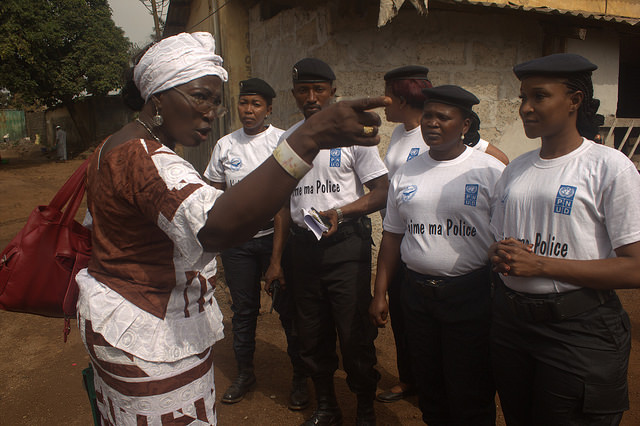
Image: UNDP | Flickr
This report summarises the project, funded and facilitated by the Gates Foundation and the Institute for Disease Modeling, to use both epidemiological and behaviour change data from the Ebola outbreak in Sierra Leone to model and quantify the impacts of behaviour and cultural change on Ebola transmission.
The authors observed that whilst it was generally accepted that changes in behaviour were essential for ending Ebola transmission in Sierra Leone, poor engagement initially may have had negative impacts on disease transmission. However, the extent to which this is true has not yet been quantified and verified. The primary objective of this project, was to contribute to ongoing work to quantify and test behaviour change disease modeling, using the extensive data collected during the Ebola response in Sierra Leone. The organisers aim to do this by bringing together research scientists, development practitioners, health professionals and policy makers. By doing this, they hope to contribute to a greater evidence base for the importance of well designed and resourced community engagement efforts that can support the behaviour changes needed to interrupt disease transmission in future outbreaks.
The aims of the project are to:
-
Identify associations between reported behavioural trends and changes in disease epidemiology during the Sierra Leone Ebola outbreak
-
Test existing theories on behaviour change during health emergencies
-
Determine the potential for reducing future disease transmission through modeling, which will inform resource allocation and implementation of community engagement during outbreaks
Read the full report here (link to PDF).

This work is licensed under a Creative Commons Attribution 4.0 International License.

Please Sign in (or Register) to view further.